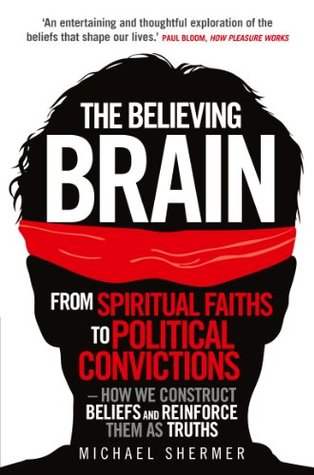More on this book
Community
Kindle Notes & Highlights
Belief reversals happen more often in science, but not at all as frequently as we might expect from the idealized visage of the exalted ‘scientific method’ where only the facts count. The reason for this is that scientists are people too, no less subject to the whims of emotion and the pull of cognitive biases to shape and reinforce beliefs.
our evolved tribal tendencies lead us to form coalitions with fellow like-minded members of our group and to demonize others who hold differing beliefs.
The universe really did begin with a big bang, the earth really is billions of years old, and evolution really happened, and someone’s belief to the contrary really is wrong.
Every man is the creature of the age in which he lives; very few are able to raise themselves above the ideas of the times.
Since the brain does not perceive itself or its inner operations, and our normal experience is of stimuli entering the brain through the senses from the outside, when a neural network misfires or otherwise sends a signal to some other part of the brain that resembles an outside stimulus, the brain naturally interprets these internal events as external phenomena.
The number one predictor of anyone’s religious beliefs is that of their parents and the religious environment of the family.
once people commit to a belief, the smarter they are the better they are at rationalizing those beliefs. Thus: smart people believe weird things because they are skilled at defending beliefs they arrived at for nonsmart reasons.
A little religion is one thing, but when it is all one talks about it can become awkward and uncomfortable for family and friends who don’t share your faith passion.
Everything happens for a reason, and God has a plan for each and every one of us. When something good happens, God is rewarding us for our faith, our good works, or our love of Christ. When something bad happens, well, God works in mysterious ways, don’t you know? Who am I to doubt, question, or challenge the Almighty?
Imagine that you have a die in your hand that you roll three consecutive times and note the outcome. Which of the following sequences is more likely: 2-2-2 or 5-1-3? Most people say that the second outcome is more likely than the first, because it seems like a streak of 2s is more improbable. In fact, both are equally likely


